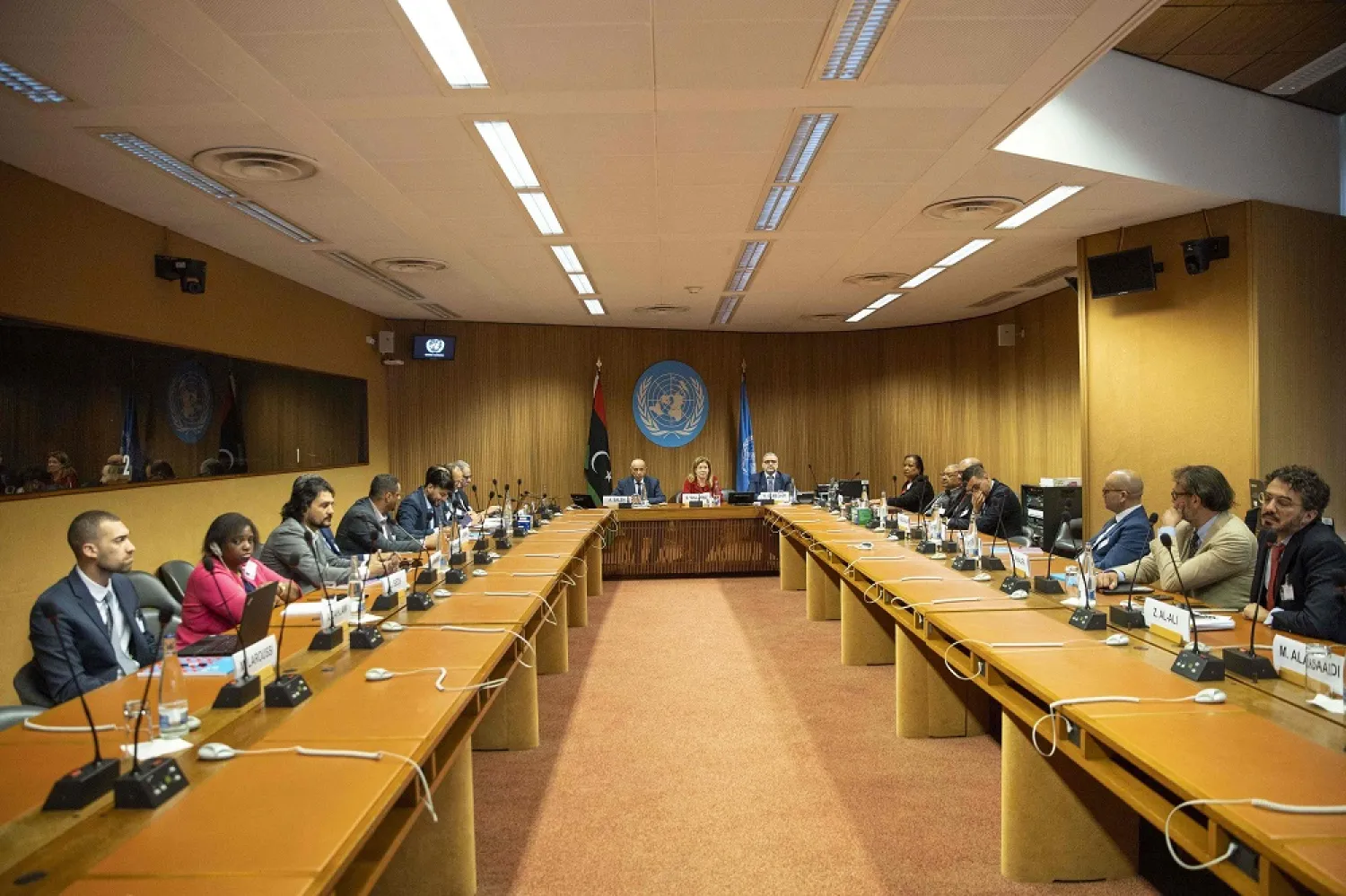The heads of Libya's two rival legislative chambers met in Geneva on Tuesday for negotiations aimed at restoring a UN-led election process that fell apart last December.
Agreement on national elections would represent a big step towards stopping another bout of warfare and helping to end a decade of chaos and conflict since the NATO-backed ousting of Moammar al-Gaddafi in 2011.
Both bodies are recognized under the UN-approved 2015 Libyan Political Agreement as the two legislative bodies, but they have been in direct confrontation with each other for most of the period since Libya split between eastern and western factions in 2014
Parliament speaker Aguila Saleh and High State Council head Khaled al-Mishri arrived at the UN Geneva office on Tuesday morning and sat stiffly, separated by the United Nations Libya adviser Stephanie Williams.
"It is now the time to make a final and courageous effort to ensure that this historic compromise takes place," she said at the start of the talks which began at 11:00 CET (09:00 BST).
She added that the timeline and process to "guarantee a clear path to the holding of national elections as soon possible" would be discussed.
UN political affairs chief Rosemary DiCarlo expressed hope at the UN Security Council on the eve of the talks that the meeting would lead to a "final and implementable agreement that would lead to the elections at the earliest possible date."
However, analysts were more downbeat, seeing little prospect that could help avert renewed conflict or de facto partition.
Agreement on how to hold an election would help resolve a standoff over control of government that has renewed splits between rival factions involved in the last major bout of conflict that paused two years ago.
There is currently no agreement on how to move the political process forward and who should rule the country in the lead up to elections, with one government in the capital Tripoli and a rival one backed by the parliament in the coastal town of Sirte.









